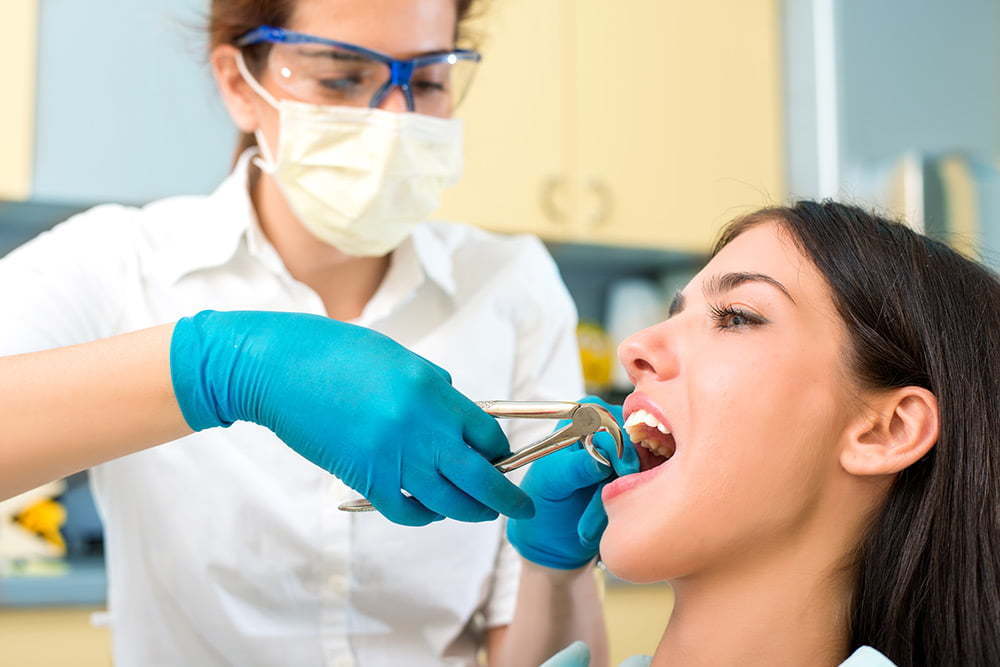
Wisdom tooth extraction is a common dental procedure that involves the removal of one or more wisdom teeth. Wisdom teeth are the third set of molars that typically emerge in the late teenage years or early adulthood, and not everyone develops them.
Here are some common reasons why a person may need a wisdom tooth extraction:
- Impacted teeth: Sometimes, wisdom teeth don't fully emerge or grow in at an angle, causing them to become impacted or trapped beneath the gum line. This can lead to pain, swelling, and infection.
- Crowding: Wisdom teeth can push against other teeth and cause crowding, which can lead to misalignment and difficulty maintaining good oral hygiene.
- Decay or gum disease: Wisdom teeth are located at the back of the mouth, making them difficult to clean properly. This can lead to decay and gum disease, which can cause pain and inflammation.
- Cysts or tumors: In rare cases, wisdom teeth can develop cysts or tumors, which can damage the surrounding teeth and bone.
In general, if your dentist or oral surgeon recommends wisdom tooth extraction, it's likely because leaving the teeth in place could lead to complications down the line. However, the decision to have wisdom teeth removed should be based on individual circumstances, and you should consult with your dentist or oral surgeon to determine the best course of action for your situation.
Wisdom Tooth Extraction Recovery
The recovery period after wisdom tooth extraction can vary depending on the individual, the complexity of the extraction, and how well you follow post-operative instructions. Here are some general guidelines for wisdom tooth extraction recovery:
- Rest and take it easy: You should take it easy for the first few days after surgery. Avoid strenuous physical activity, and get plenty of rest.
- Manage pain and swelling: Pain and swelling are common after wisdom tooth extraction. Your dentist or oral surgeon may prescribe pain medication, or you can use over-the-counter pain relievers like ibuprofen. Applying an ice pack to the affected area can also help reduce swelling.
- Eat soft foods: For the first few days after surgery, stick to soft foods like soup, yogurt, and mashed potatoes. Avoid hard, crunchy, or sticky foods that could irritate the extraction site.
- Practice good oral hygiene: You should continue to brush and floss your teeth, but be gentle around the extraction site. Your dentist or oral surgeon may recommend a special mouthwash to help prevent infection.
- Follow post-operative instructions: Your dentist or oral surgeon will provide you with specific instructions for your recovery period. Be sure to follow these instructions carefully, including any medications, diet restrictions, and activities to avoid.
It's important to attend any follow-up appointments with your dentist or oral surgeon to monitor your recovery and ensure that the extraction site is healing properly. If you experience excessive pain, swelling, bleeding, or other unusual symptoms, contact your dentist or oral surgeon right away.





























